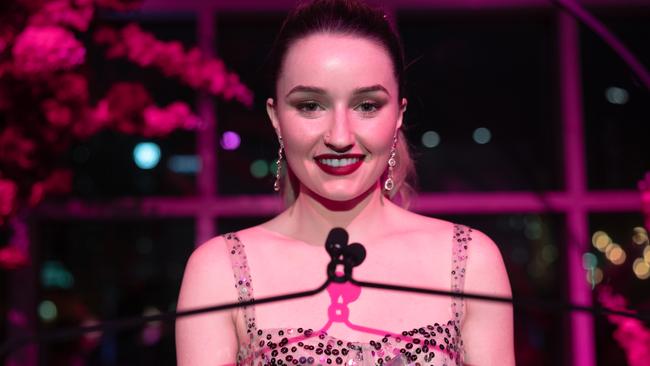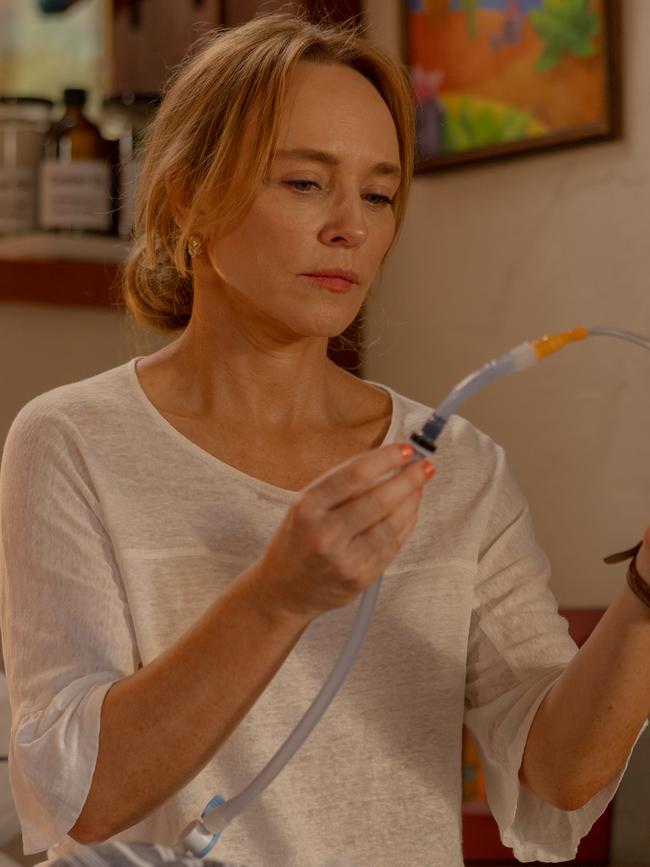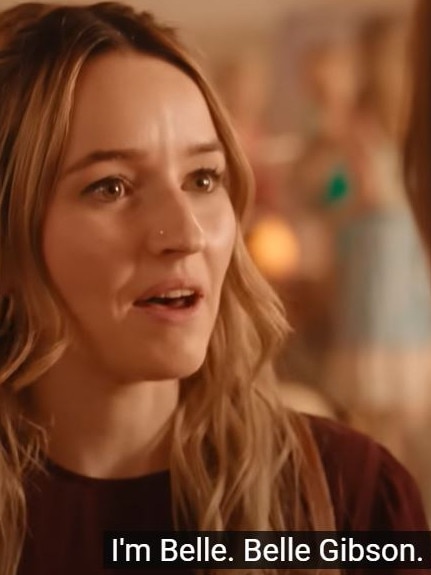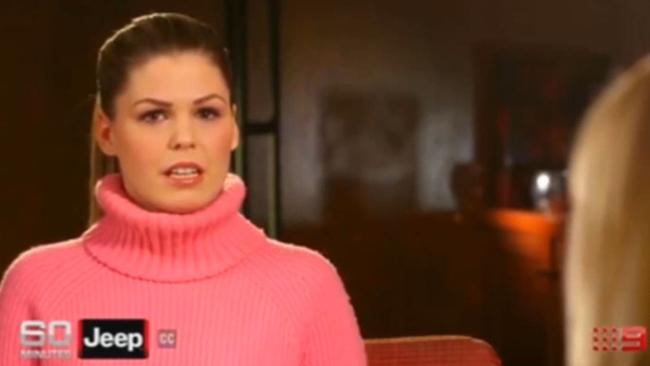Netflix adaptation of Belle Gibson cancer scammer story is a dud
The notorious Aussie cancer scammer is now the subject of a six-part Netflix drama series – but there’s one big problem that scuppers the show.
Entertainment
Don't miss out on the headlines from Entertainment. Followed categories will be added to My News.
Netflix’s new six-part series Apple Cider Vinegar, out today, is based on the true story of Belle Gibson.
It tells the story of the young Australian woman, who became a popular wellness guru with millions of followers, until it was revealed in 2015 that the brain cancer story that was the basis of her empire was completely made up.
At the beginning of the series’ first episode, Belle, portrayed by Kaitlyn Dever, actually looks in the camera and tells the fourth wall “this is a true story based on a lie”.
We see Belle in 2015 meeting with Hek (Phoenix Raei), a crisis management expert, after being outed for her lies. She insists to Hek that she actually had cancer and wants to set things straight. For his part, Hek doesn’t believe her at all, but does believe the woman who outed her, Milla Blake (Alycia Debnam-Carey), who actually did have cancer.

We then see Belle in 2013, in Melbourne, sending out videos talking about her terminal brain cancer, where doctors gave her “six weeks to live; four months, tops”. She meets Lucy (Tilda Cobham-Hervey), who has become a fan of her social media and the stories of the natural treatments that helped her “cancer” disappear. However, Lucy’s husband Justin (Mark Coles Smith), is rightfully suspicious of Belle. After citing Milla, a fellow wellness influencer, after accepting an award, Chanelle (Aisha Dee), who was Belle’s manager and is Milla’s best friend, calls up Milla, who says, “I want to destroy her.”
Then we flash back to 2009, to when Milla was diagnosed with tumours in her arm. While her oncologist wants to amputate her arm to keep the cancer from spreading, Milla wants to try an alternative treatment, citing studies with mistletoe extract. Reluctantly, the oncologist agrees to a treatment giving concentrated chemo right to the tumours.
Also in 2009, a pregnant Belle is shown returning a blanket that isn’t hers, telling a phony sob story to get sympathy. She invites people to a baby shower, and no one shows up. This is when she complains about her headaches and then starts talking about her cancer diagnosis on a pregnancy message board, despite the fact that her MRI results show that nothing was found.


Apple Cider Vinegar feels like a cross between the docuseries Scamanda and the scripted series The Dropout. The series, created by Samantha Strauss is based on the book The Woman Who Fooled the World by Beau Donelly and Nick Toscano.
But the storytelling method used in Apple Cider Vinegar is thoroughly annoying for a number of reasons. There are voiceover narrations by various characters, and multiple instances of Belle speaking right to the camera for no apparent reason, other than to show she’s really a manipulator and a pathological liar. Given that the story starts with Belle stating that it’s a “true story about a lie” and looking to rehabilitate her image after she was outed, highlighting other places where she lied seemed superfluous.
But what really got to us were the hopscotches in time, mainly because there’s no reason for it. Telling the story in a linear fashion, starting in 2009 for both Milla and Belle, then bringing in other players like Lucy and Chanelle, exploring Belle and Milla’s friendship and how it led to Milla outing Belle for her lies, would have worked just fine.

What Strauss and her writers do, however, is hop back and forth so confusingly that we had to rewind a few times to realise that Milla and Lucy were two different people, right before we launch into Milla’s story.
You would think that Belle’s story, where she continues to manipulate and lie as she becomes more popular in the wellness space, would be compelling enough on its own to not need all the gimmickry.
All that being said, we love Dever’s performance as Belle. She’s the only non-Australian in the series, but you’d be hard-pressed to identify her accent as fake if you hadn’t seen her in one of her previous roles. She has to have Belle look like the empath she claims to be while she tells lie after lie, and Dever definitely pulls that off.
Dee, Debnam-Carey and Cobham-Hervey all do a fine job, as well. Those performances might be what keep us watching, if the storytelling machinations don’t turn us off first.
And turn us off it did. Despite fine performances from Dever and other parts of the ensemble, Apple Cider Vinegar is too busy scrambling around the storytelling for no particular reason than just concentrating on telling the story in the best way possible.
This story originally appeared on Decider and is republished here with permission.
More Coverage
Originally published as Netflix adaptation of Belle Gibson cancer scammer story is a dud




